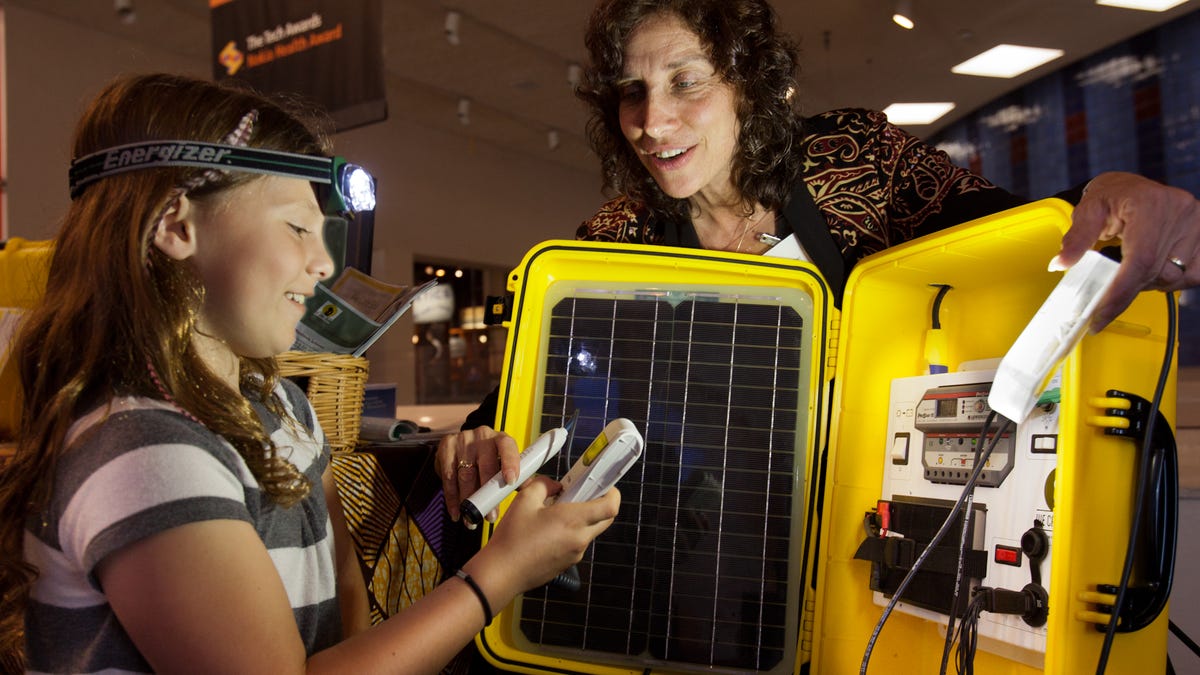Tech Awards: Water-cleaning device, solar in a suitcase
Winners of the annual Tech Awards, sponsored by San Jose's Tech Museum, are honored for their projects, which are improving people's lives around the world.

Technology projects that range from delivering clean drinking water to implementing a cheaper bank infrastructure in developing countries were honored last night at the Tech Awards in San Jose, Calif.
Five of the 15 projects honored also received $50,000 each for developing technology that benefits humanity and supports sustainability.
The Tech Awards, sponsored by The Tech Museum in San Jose, were established in 2001, to recognize 15 projects annually in five categories: environment, education, equality, health, and economic development.
"The tens of thousands of people who didn't have clean water to cook or bathe in Honduras now have safe, usable water today. In fact, there are millions who live in the Philippines who didn't have access to toilets. Today that has changed, too," Ann Bowers, chairwoman of The Tech Museum board of directors, said in a statement, when the 15 honorees were first announced last month.
The winner of the Intel Environment Award is Agua Clara, which solves the problem of delivering clean drinking water to people in Honduras. The gravity-powered water treatment unit operates without electricity. The water project brings drinking water to more than 20,000 people, who often live off $2 per day. Additionally, the program trains local entrepreneurs to further promote sustainability within the community.
The Microsoft Education Award goes to PhET for improving science literacy. PhET's interactive simulations explain physical phenomena. And this project, based at the University of Colorado at Boulder, also translates the research-based models into 64 languages.
The winner of the Katherine M. Swanson Equality Award is Universal Subtitles Project, which puts subtitles on videos. So far this year, 25,000 videos have been translated through this project. Another 100,000 are set for translation by year's end. The service has been used by the media during events like the Japanese tsunami.
The Nokia Health Award was presented to We Care Solar, which stands for Women's Emergency Communication and Reliable Electricity. We Care puts solar energy systems into a suitcase so clinics and medical facilities can power up, even when they are off-grid. The suitcases are in use in 100 clinics in developing countries and disaster zones.
And finally, the Flextronics Economic Development Award went to Eko India Financial Services, which brings banking to underserved areas in India. It has already reached 800,000 clients.
Other honorees include the Kommunity Desk, which provides desks to children in developing countries (it's on track with its partnership with the Tutudesk Campaign to hand out 20 million desks by 2015); Games for Change, which supports video games that create a social impact; and the Water, Agroforestry, Nutrition, and Development Foundation, which provides a low-cost composting toilet to people living in the Philippines.
Jeff Skoll, who was eBay's first president, received the Global Humanitarian award last night. Former recipients include Microsoft co-founder Bill Gates and former Vice President Al Gore.
"The Global Humanitarian Award is personally very meaningful to me for two primary reasons. Even when I was a young engineer, I really believed that technology could help improve people's lives. It's the great enabler. It gives voice to the voiceless, it empowers people, and it connects them," Skoll said to the audience during the awards ceremony.
"The second reason is the company that it keeps. When I look at the list of past recipients, these are all people who I've worked with directly, and I deeply respect the work they're doing. So, it's very humbling to be considered alongside these great humanitarians."

